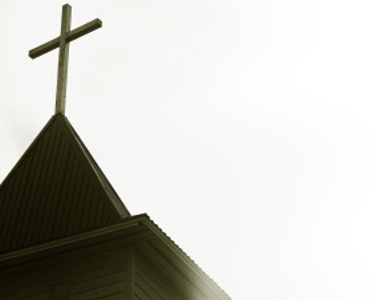Church Buildings Attacked in Malaysia Following Court Decision
 In unprecedented acts that stunned Christians in Malaysia, suspected Islamists have attacked eight church buildings since the country’s High Court ruled that a Catholic weekly could use the word “Allah.”
In unprecedented acts that stunned Christians in Malaysia, suspected Islamists have attacked eight church buildings since the country’s High Court ruled that a Catholic weekly could use the word “Allah.”
Firebombs were thrown into the compounds of four churches in Kuala Lumpur and neighboring Petaling Jaya on Friday; three more attacks occurred on Sunday in Taiping, Melaka and Miri; and another church building was hit today in Seremban. There were no reports of injuries.
Judge Lau Bee Lan delivered the controversial court ruling on Dec. 31, arguing that the Herald had a constitutional right to use the word “Allah” for God in the Malay section of its multi-lingual newspaper. The ruling caused an uproar among many Muslim groups widely reported to have called for nationwide protests after Friday prayers, asserting that “Allah” can be used only in the context of Islam. Among groups calling for protests were the Muslim Youth Movement and the National Association of Muslim Students.
Inflammatory rhetoric has emerged in the escalating conflict; at a protest in Shah Alam since protests began on Friday, a speaker at one rally urged listeners to “burn churches,” according to the online news site Malaysian Insider. The crowd reportedly stood in stunned silence.
Malaysia’s Home Ministry filed an appeal against the High Court decision on Jan. 4. Two days later, the court allowed a freeze on the decision to permit the Herald to use the word “Allah” pending hearing in the Court of Appeal.
The attacked churches were Metro Tabernacle (Assembly of God) in Kuala Lumpur, and three churches in Petaling Jaya: Life Chapel (Brethren), Assumption Church (Catholic) and Good Shepherd Lutheran Church (Lutheran); also damaged were All Saints’ Church (Anglican) in Taiping, Melaka Baptist Church in Melaka (vandalized but not firebombed), Good Shepherd Church (Catholic) in Miri (pelted with stones) and Sidang Injil Borneo (Evangelical Church of Borneo) in Seremban.
Though there were no casualties, a number of the church buildings were damaged in the attacks. Metro Tabernacle suffered the worst damage, with the ground floor of its three-storey building, which housed its administrative office, completely gutted. The main door of the church in Seremban was charred.
The Rev. Ong Sek Leang, senior pastor of Metro Tabernacle, reportedly said that the church harbors no ill feelings toward the culprits and would forgive those responsible, but that it does not condone the acts.
Most of the other church buildings suffered minor damage, though the Assumption Church was spared when the Molotov cocktail thrown into its compound failed to go off. The Melaka Baptist Church building was splashed with black paint, while stones were thrown into the Good Shepherd Church building in Miri.
The Malaysian Insider reported on Friday that two other churches received telephone threats from unknown sources.
Christian leaders, government and opposition leaders, and Non-Governmental Organizations have condemned the attacks. Police have promised to increase security around church buildings, but Inspector-General of Police Chief Musa Hassan told the Malaysian Insider that churches must beef up their own security since there is a shortage of police personnel.
Malaysia’s population is about 60 percent Muslim, 19 percent Buddhist and 9 percent Christian. About 6 percent are Hindu, with 2.6 percent of the population adhering to Confucianism, Taoism and other traditional Chinese religions.
Shocked
The spate of church attacks shocked the Christian community and nation, as acts of violence on places of worship are unprecedented in Malaysia.
Ramon Navaratnam, Chairman of the Centre of Public Policy Studies, said in a press statement on Friday that the attacks marked a “troubling trend” and “a low point in our nation’s history.”
The same day, Malaysian Bar Council Chairman Ragunath Kesavan said in a press statement that the attacks were “shocking and offensive” and that “all right-minded Malaysians must condemn it as indecent and unacceptable.”
Christian leaders strongly denounced the attacks and have asked the government to safeguard the community and its places of worship. They have also called on the government to take firm steps against the perpetrators while paving the way for greater understanding between the different religious communities.
The Rev. Dr. Hermen Shastri, general secretary of the Council of Churches Malaysia, called on the government to “show zero tolerance for the use, threat or incitement, of violence as a means to pressure the decision of the court.” The Rev. Eu Hong Seng, chairman of the National Evangelical Christian Fellowship, called on the government “to take the necessary steps to educate those who lack understanding and are ‘easily confused’ to be mature-minded in a progressive democratic society.”
Leaders on both sides of the political divide have also denounced the attacks, while a number of opposition leaders – including Anwar Ibrahim, adviser to the People’s Justice Party – put the blame on the United Malay National Organization (UMNO), the leading partner in the ruling coalition government. Anwar reportedly accused UMNO-owned newspaper Utusan Malaysia of having incited Muslims over the court decision.
A number of local commentators have also criticized Prime Minister Najib Abdul Razak and Home Minister Hishammuddin Hussein for not defusing rising tensions in the initial days of the court ruling. They have also come under fire for saying they would allow public demonstrations by Muslim groups to proceed, and that they would take action “only if things got out of hand.”
Despite the attacks, a check with parishioners of several churches in the Klang Valley showed Christians were undeterred by the acts of violence and continued to gather for worship yesterday.
Urging Christians to pray, Sam Ang, secretary-general of the National Evangelical Christian Fellowship, told Compass, “We see this as an opportunity to trust in the Lord and to revitalize our faith, especially for second-generation Christians.”














































